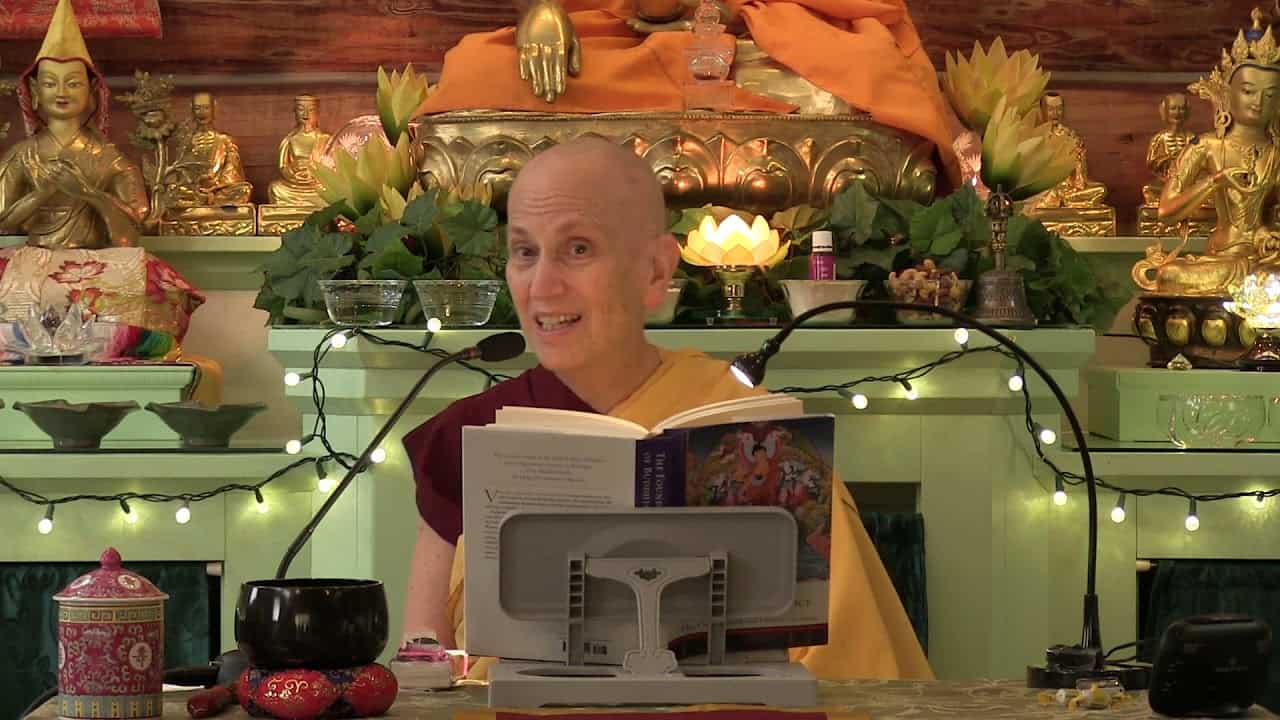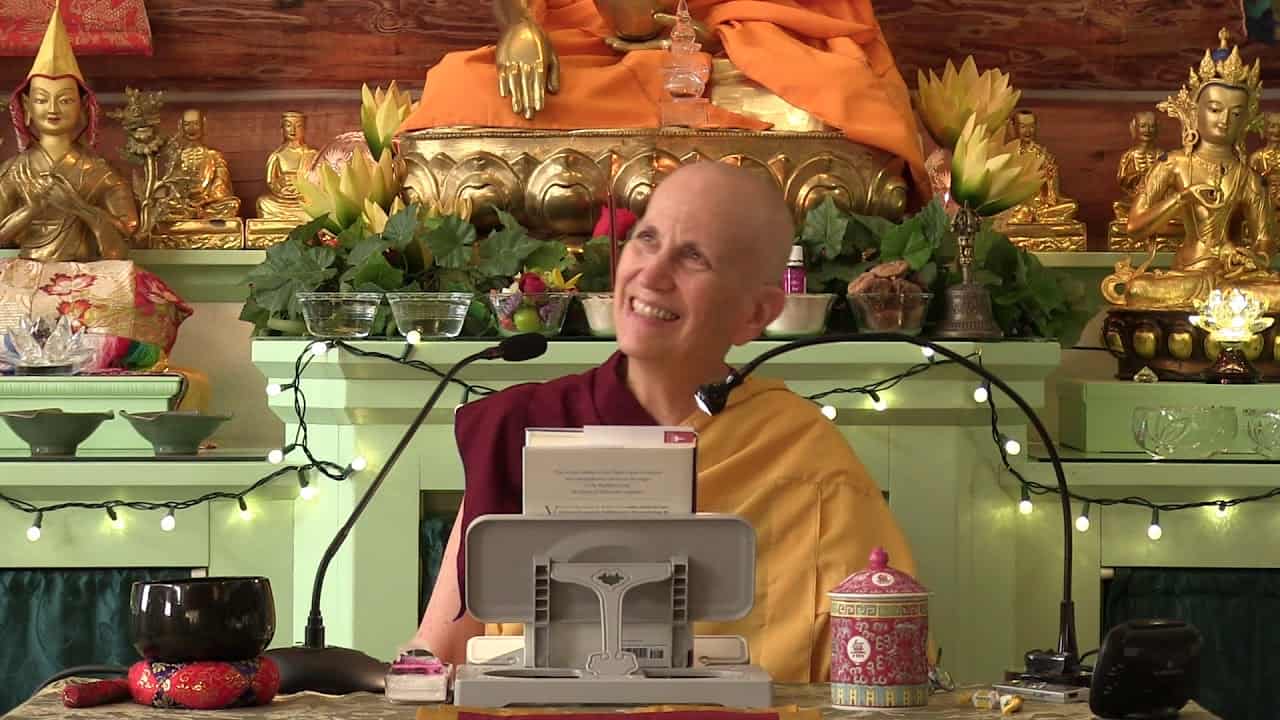Becoming a qualified disciple
20 The Foundation of Buddhist Practice
Part of a series of teachings given during a retreat based on the book The Foundation of Buddhist Practice given at Sravasti Abbey.
- Seek internal qualities, not titles or external appearances
- Various titles for teachers in the Tibetan tradition
- The tulku system as a cultural practice of Tibetan society
- The need to return to the Nalanda tradition of philosophical studies over elaborate cultural ceremonies and rituals
- Becoming a qualified disciple
- Cultivating the qualities of being unprejudiced, intelligent, and eager/diligent in the practice of Dharma
- The role of respect toward the teacher and teachings
- The importance of being an intelligent disciple to receive and hold the Dharma
- Questions and answers
The Foundation of Buddhist Practice 20: Becoming a qualified disciple (download)
Contemplation points
- Why is it that we can’t rely on titles and costumes to know the qualifications of a spiritual teacher? Are you easily influenced by titles, external appearances, and charisma? If so, what ideas do you have for redirecting your focus to important qualities?
- What are the five qualities of a qualified student? Why are each of them so important to progressing on the spiritual path? Recalling that these five qualities are ones we can develop in this life, what ideas do you have to increase them in yourself?
- What have you learned from the simile of the snake? What are the dangers of injecting our own misperceptions onto the teachings? What are the benefits of correctly understanding and applying the teachings with a virtuous motivation?
- What have you learned from the simile of the raft? What is the purpose of the Dharma and what are we seeking to attain through its use? What are the two dangers we are encouraged to avoid in this simile and why?
Venerable Thubten Chodron
Venerable Chodron emphasizes the practical application of Buddha’s teachings in our daily lives and is especially skilled at explaining them in ways easily understood and practiced by Westerners. She is well known for her warm, humorous, and lucid teachings. She was ordained as a Buddhist nun in 1977 by Kyabje Ling Rinpoche in Dharamsala, India, and in 1986 she received bhikshuni (full) ordination in Taiwan. Read her full bio.


